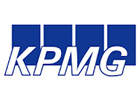A Non-Exec does not play a hands-on role in the day to day operations of your business. Instead, the Non-Exec plays a more hands-off, more guiding and more of a devil’s advocate role.
Typically, Non-Execs are involved with the client business 1 or 2 days a month or maybe they just attend for the monthly Board Meeting.
The role of the Non-Exec is to support, challenge and generally create debate about key issues within the business. If needed, the Non-Exec will bring structure and discipline to the company’s management information reporting and will bring governance to ensure that every senior manager is held accountable.
Most importantly, the Non-Exec will become a trusted advisor to the CEO and his team. The Non-Exec will use his or her experience to look down the track and see what issues the company may need to face up to in the coming months and years. The Non-Exec will then focus the company on completing those exercises that are most pressing.
A brief range of issues the Non-Exec may discuss:
- Does the Finance Team service the needs of the business now and is it likely to be adequate for the foreseeable future?
- Do the current monthly reports highlight the right things?
- Do we compare current performance with last year’s figures and do we have a budget?
- How smoothly have recent audits gone and is the business vulnerable to accounting surprises?
- Are commercial and operational KPIs covering every nook and cranny of the business?
- Is the Management Information reviewed and acted upon?
- Are there action plans minutes setting out who is targeted with doing what and by when?
- Do we have any experience gap in the team? How will we fill that gap?
- Is the succession plan adequate or does it need developing? What happens if X gets knocked over next week?
- Is the company’s IT capability adequate?
- Are the company’s professional advisors able to grow with the company during a period of rapid growth?
- Is the business over reliant on particular suppliers?
- Does the supply chain react quickly enough to changes in sales demand?
- Do we need to bring any products back to in-house manufacture?
- Would we be better outsourcing certain activities?
- What percentage of total turnover do key customers represent?
- Do we know what margin we are making – by sales channel, by customer, by products, by territory? Do we know which areas are improving and which are deteriorating?
- Are any of our products reaching their end of life and do how strong are our NPD processes?
- What is the relationship like with our bankers / other funders?
- Are they happy with the way we manage the relationship – do we need to change anything?
- Do we have a detailed and reliable cashflow forecasting system? Do we always hit the forecast? Is it used as a vital management tool?
- Do we have adequate working capital levels and funding for the next three years?
- Do we have a formal Risk Register? Have we thought through the key risks facing the business and do we have processes in place to mitigate those key risks?
- Do we have adequate insurance cover in place in the event of a disaster?























